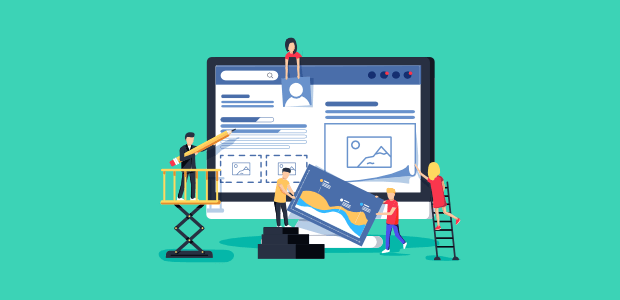Why You Should Always Use the Latest Version of WordPress
Every time a new WordPress update comes out, we get several emails from users asking whether it’s safe to update their WordPress site. Are you wondering whether you should update your WordPress to the latest version? Want to know the pros and cons of updating WordPress?
WordPress is free, and it is developed by a community of developers. With each new release, they fix bugs, add new features, improve performance, and enhance existing features to stay up to date with new industry standards.
So in other words, when you do not update your WordPress site, you are risking your website security and missing out on new features / improvements.

Let’s take a look at pros and cons of updating WordPress.
1. Security
Security is arguably the most important reason why you should keep your WordPress website up to date.
WordPress currently powers 23% of all websites in the world. Due to it’s immense popularity, WordPress is a popular target for hackers, malicious code distributors, data thieves, and wanna be hackers.
Since WordPress is open source, anyone can study the source code to learn and improve it. However it also means that hackers can study it too and find ways to break into websites.
Now the good part is that not all hackers are bad. There are a lot more good hackers than bad ones which means that security experts around the world can study the code and properly report security bugs / fixes. Every time a security vulnerability is reported, the core WordPress team works diligently to release an update that fixes the issue.
This means that if you are not using the latest version of WordPress, then you are using software with known security vulnerabilities. Hackers can search for websites running the older version, and you may become a victim of a sophisticated attack.
Not just WordPress itself, plugins can also be exploited by hackers. You need to make sure that all your WordPress plugins, themes, and the core itself is always up to date.
2. Cool New Features
Each major WordPress release comes with new features and changes to the software. For example, WordPress 4.0 came with improved plugin install experience, 4.1 introduced inline image editing, and 4.2 came with faster plugin updates.
Now if you were using an older version of WordPress, then your WordPress experience would be a lot different than someone using the latest version.
3. Speed
WordPress developers are always trying to make things faster. Each new release comes with several performance improvements that makes WordPress run faster and more efficient.
For example, WordPress 4.2 improved JS performance for navigation menus, and WordPress 4.1 improved complex queries which helped with performance of sites using those queries.
Since speed is a huge factor in SEO, you should definitely keep your WordPress updated to ensure maximum performance benefits.
4. Bug Fixes
Despite the rigorous testing of major WordPress releases, sometimes bugs may slip through the cracks. That’s why there are timely minor WordPress releases (the ones with X.X.X) to account for that.
Now if you go to WordPress support forums asking for help, the first advice you will get is to update WordPress because that may fix the issue. If you insist on not updating WordPress, then you will be unable to receive help.
5. Compatibility (or NOT)
Often plugin and theme developers coordinate their updates with major WordPress releases to ensure they’re taking advantage of newly available features and enhancements.
However in some cases, an update can break your existing WordPress plugins if they weren’t following the best practices and coding standards.





Post a Comment